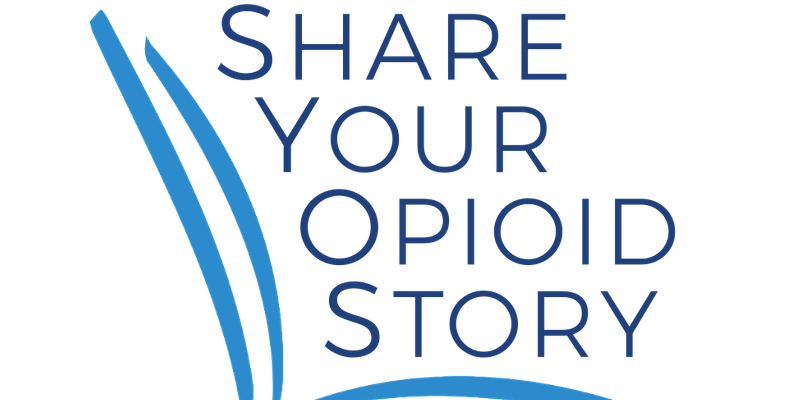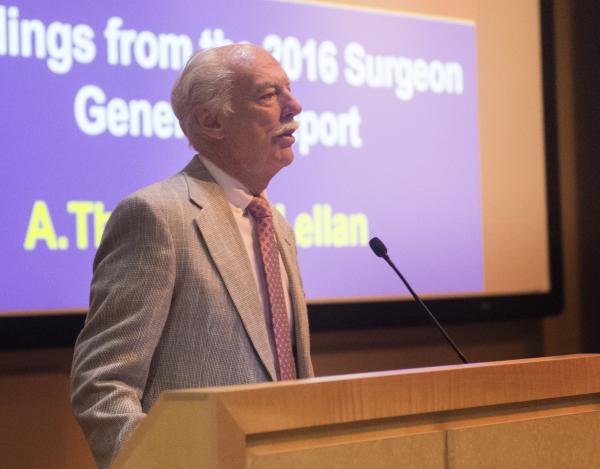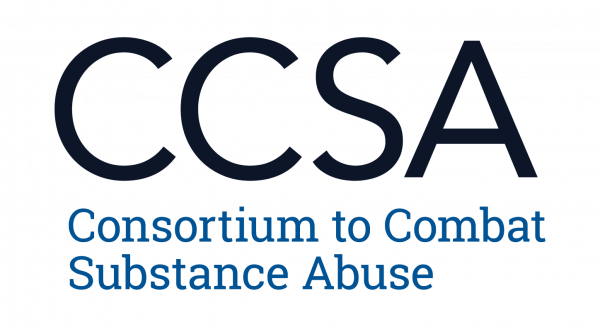25 Years of Service (2) Abortion Rights (1) Activist Groups (1) Addiction (14) ADHD (1) Administrative Data Accelerator (1) Adolescents (2) Aging (19) Agriculture (3) AI (5) AI Hub (2) Air Quality (1) Alaska (4) Alcohol (1) Alzheimer’s Disease (1) Amish (1) Annual Report (2) Anthropology (5) Anxiety (1) Arctic Research (4) Artificial Intelligence (3) Asian Families (2) Associate (1) Asthma (2) Autism (1) Award (24) Babies (2) Big Data (3) Biobehavioral Health (16) Black Families (2) Brain (4) Bullying (1) Business (1) Cancer (1) CCSA (11) Celebration (5) Census (9) Center for Education and Civil Rights (9) Center for Educational Disparities (29) Center for Global Studies (1) Center for Health Care Policy Research (1) Center for Healthy Aging (1) Center for Security Research and Education (4) Center for Social Data Analytics (1) Center for Socially Responsible Artificial Intelligence (4) Center on Education and Civil Rights (2) Child Development (2) Child Health (2) Child Maltreatment (6) Child Maltreatment Solutions Network (5) Child Obesity (6) Child Study Center (2) Chronic Illness (2) Civic Engagement (2) Clearinghouse for Military Family Readiness (6) Climate Change (23) Clinical and Translational Science (6) Cognition (3) Collaborative on Population Aging Disparities (1) College of Agricultural Sciences (12) College of Communications (2) College of Earth and Mineral Sciences (1) College of Education (36) College of Health and Human Development (30) College of Information Sciences and Technology (3) College of Medicine (12) College of Nursing (1) College of the Liberal Arts (37) Communication (5) Communication Arts and Sciences (1) Community (14) Computational and Data Sciences (2) Computational and Spacial Analysis (2) Concussions (1) Conference (10) Consortium on Moral Decision-Making (6) COSSA (13) COVID-19 (27) Criminal Justice (5) Criminal Justice Research Center (7) Criminology (16) CSA (19) CSUA (6) CTSI (43) Data Management (8) Data Resources Hub (1) Data Sources (2) De Jong Lecture (7) Death (3) DEI (3) Democracy (3) Demography (51) Depression (4) Disasters (8) Discrimination (10) Diseases of Despair (1) Dyslexia (1) Economics (4) Edna Bennett Pierce Prevention Research Center (1) Education (20) Education Policy (13) Educational Attainment (4) EIC (8) EIC Podcast (4) Emotion (1) Employment (5) Environment (2) Exercise (1) Expanding Empathy Speaker Series (1) Faculty Fellows (8) Faculty Information (4) Family (9) Family Symposium (20) Fellowship (6) Food Security (4) Forest Resources (1) Foster Care (2) Friends (3) Fullbright Scholars (2) Funding (57) Gender Equality (3) Generational Disadvantages (2) Genetics (2) Geography (4) Geology (1) Geospatial (3) Geroscience and Dementia Prevention Consortium (2) GIS (1) Global Programs (7) Global Warming (5) Government (15) Grief (2) Gun Control (2) Gun Violence (1) Health (7) Health Care (12) Health Disparities (9) Health Equity (9) Health Policy and Administration (5) Hispanic Families (3) Housing (2) Huck (2) Human Development and Family Studies (24) Human Trafficking (1) ICDS (1) IFSE Workshop (3) Immigrants (2) Immigration (30) Impact (3) Indigenous Communities (3) Inequality (2) Inequities (2) Influence (2) Information Technology (4) Innovation (2) Institute for CyberScience (8) Institutes of Energy and the Environment (3) Intentional School Failures (1) Interventions (2) IPDR (1) IRB (2) Job (3) Kinesiology (1) Kinship (3) Labor Exploitation (1) Labor Relations (6) Latino (1) Law (1) Lecture (2) Lerner Center for Public Health Promotion Brief (2) Life Course Exposures (1) Life Expectancy (4) Lloyd Prize (1) Machine Learning (1) Malnutrition (1) Marcellus Shale Natural Gas Development (1) Marijuana (1) McCourtney Institute for Democracy (9) MDI (1) Memory (2) Mental Health (5) Mexico (2) Migration Research (25) Military Families (1) National Security (1) Natural Resources (1) New Methodologies (1) NIH (30) Nominations (1) NSF (21) Nursing (1) Nutrition (1) Nutritional Sciences (1) Obesity (5) Online Aggression (1) Open Access Research (3) Open House (2) OpenMx (1) Opioids (25) OSVPR (10) Overdose (1) PAA (3) PacMAT (1) Parenting (1) Partnership (2) Penn State Cancer Institute (3) Penn State Research (93) Pennsylvania Population Network (6) Pennsylvania Redistricting Advisory Council (1) Philosophy (1) Playing the Archive (2) Podcast (9) POLARIS (3) Policymaking (16) Political Science (11) Politics (12) Population (3) Population Health (6) Population Research (3) Postdoctoral (4) Poverty (1) PPN Brief (2) Pregnancy (3) Preschool (1) Prevention Research Center (4) Prevention Science (6) PRI (100) PRI Affiliate (3) PRI Associate (23) Private Services (1) Professor (1) Promotion Announcement (1) Proposal (7) Protocol (1) Psychology (12) Public Health Sciences (3) Public Policy (10) Public Services (1) Qualtrics (1) QuantDev (4) Race (1) Racial and Ethnic Minorities (5) Racial Disparities (8) Racism (1) RDC (1) Recovery (1) REDCap (1) Refugees (1) Relationships (1) Research (28) Research Evidence (8) Research-to-Policy Collaboration (4) RISE Conference (1) Rock Ethics Institute (3) RPC (1) Rural Communities (12) Rural Health (8) Rural Sociology (14) School (17) School of Public Policy (2) Science Policy (1) Security (2) Seed Funding (29) Segregation (14) Self-control (2) Seminar (7) Siblings (1) SJRC Equity Fellows (1) Sleep (5) SLEIC (1) Smoking (4) Social Data Analytics (2) Social Inequity (3) Social Justice (3) Social Media (4) Social Science (63) Social Stressors (1) Sociology (50) Software (3) Special Education (12) Spring Gathering (3) SRC (1) SSRI (79) SSRI Affiliates (3) SSRI Associate Directors (1) SSRI Cofunds (25) SSRI Director (5) SSRI Staff (3) Stress (4) Substance Abuse (14) Substance Use (7) Suicide (2) Support Resources (2) Survey Research Center (1) Symposium (2) Teams (1) Teens (4) Texas (1) Transportation (1) Twitter Data (5) Unemployment Rate (3) University Policy (2) Veterans (2) Violence (1) Visiting Scholar (1) Water (6) We Are (2) Why Social Science? (21) Womens Health (2) Womens Studies (1) Work Conditions (1) Workforce Development (1) Working Groups (2) Workshop (10)
Fentanyl and COVID-19 pandemic reshaped racial profile of overdose deaths in US
For as long as statistics about opioid overdose deaths have been collected in the United States, white individuals have been much more likely to die than Black individuals of the same age. With the rapidly increasing rate of fentanyl overdoses in the late 2010s, that trend began to…
How understanding neighborhoods can help reduce tobacco use
A Penn State researcher testing a new way to assess tobacco use with a neighborhood mapping platform and in-person interviews has found that community engagement is key to addressing risky health behaviors. Cigarette smoking remains the leading cause of preventable disease…
New project to track post-prison trajectories of men living with addiction
Despite widespread national attention, the opioid epidemic and larger problems of substance use and misuse continue to deeply affect communities across Pennsylvania and throughout the nation. The impact of the opioid crisis and other substance abuse problems hits even harder for people grappling…
For many, friends and family, not doctors, serve as a gateway to opioid misuse
In a common narrative of the path to opioid misuse, people become addicted to painkillers after a doctor prescribed them pills to treat an injury and then, later, switch to harder drugs, such as heroin. However, nonmedical opioid users were more likely to say they began abusing opioids after…
Study: Friends, family are most common gateway to addiction, not doctors
By Rich Lord, Pittsburgh Post-Gazette The often-told story of the prescription for an opioid that launches the patient down the road to ruin is not the typical tale of heroin addiction, according to a new report by researchers from Penn State and other universities. More common, according to the…
Share Your Opioid Story: A Community Conversation at Schlow Library on May 30
The Share Your Opioid Story initiative is hosting a Community Conversation at the Schlow Centre Region Library in State College to tell the stories behind the statistics of the opioid crisis. This community event will take place at 5:30 p.m. on Thursday, May 30 in the Downsbrough Community Room. To…
First annual conference to address substance misuse held at Penn State
Pennsylvania is in the midst of a full-fledged, substance misuse epidemic, with one out of every four families encountering this issue. Penn State is combating the crisis by drawing upon the expertise of researchers, educators, practitioners and policymakers, who gathered recently for the…
Understanding opioid users' views on fentanyl could help reduce overdoses
Opioid users fear accidental overdoses from street drugs laced with fentanyl, but unpredictable drug quality means they often lack reliable strategies to avoid it, according to a team of researchers who suggest that fentanyl test strips may reduce overdose deaths. "The opioid crisis is one of the…
Consortium to Combat Substance Abuse Conference adds speakers
Still on the fence about coming to the conference? We just found out that Anne Herron, acting director in the Office of the Director at the Center for Substance Abuse Treatment (CSAT) at SAMHSA will also be joining us! The activities of her office include working to close the gap between…
Register Today for the CCSA Conference
There is still time to register for the Consortium to Combat Substance Abuse's first annual conference, Envisioning a Future Free from Addiction: Research, Programs, and Practice to Prevent Substance Abuse, to be held Monday, April 29, on Penn State’s University Park campus at the Hetzel Union…
Inaugural substance abuse conference to be held April 29 at University Park
Penn State’s Consortium to Combat Substance Abuse (CCSA) will host a conference to bring together researchers, practitioners, policymakers, foundation representatives, and the public to discuss significant and emerging problems in combating substance abuse. “Envisioning a Future Free from Addiction…
Penn State launches new consortium to combat the opioid crisis
Pennsylvania is one of the states most impacted by the growing opioid epidemic, with one of the highest overdose death rates in the country — but a new initiative bringing together experts from across Penn State aims to combat this crisis through data-driven, evidence-based innovation. The Penn…
Penn State hosts summit to combat the opioid epidemic
Opioid overdose deaths in Pennsylvania increased 37 percent in 2016, ranking the state fourth in the nation. Coming on the heels of Gov. Tom Wolf’s declaration of the opioid crisis as a disaster emergency, Penn State recently held its first University-wide summit on the opioid epidemic. The summit…
Penn State researchers developing startup to help people in addiction recovery
A group of Penn State researchers is developing a system — WearIT — utilizing wearable devices as tools to help individuals battle addiction. Their idea was the winner of Ben Franklin Technology Partners of Central and Northern Pennsylvania’s TechCelerator program, receiving $10,000 in December to…












